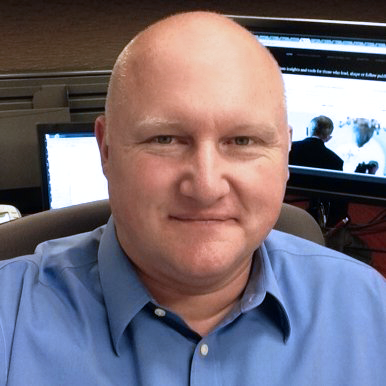As any of us who have attended a conference know, there are decisions to be made before you even get to the airport. Which seminars will you attend? Who will you try to meet with in person? Should you go to the dinner or the cocktail hour?
Events planners have long tried to lower that burden by providing recommendations — matching attendees both to content and with each other. They suggest certain seminars. They help book in-person meetings. The promise of a custom experience for every attendee is a game changer.
It’s also a lot of work.
Collecting data on hundreds — often thousands — of attendees, collating that data, reaching usable conclusions, and then communicating that information can take a great many man-hours.
What if a computer that is capable of thinking and learning could do it for us? That's the promise artificial intelligence holds for those who plan and organize events.
AI in Your World
As Tim Urban, writer of the Wait But Why blog, explains, there is “general intelligence,” which is what humans exhibit, and “narrow intelligence,” which is more like software, capable of specific jobs.
When it comes to AI, general intelligence is still the stuff of Hollywood movies. But narrow intelligence, machines that focus on discrete tasks and can learn beyond their coding, is very much in evidence today — and growing fast.
“Narrow intelligence, I believe, is going to infiltrate at a whole different level than we’re used to, that can only be compared to what happened in the 1880s when electricity went from being used in certain applications, being used in industry, to being everywhere and part of everything,” Urban said in an interview.
Narrow AI can be seen all around us, from Siri and Alexa to the systems that price airline tickets. It's also at work in many places it can't seen, from business systems to those at work under the hood of the average car. When combined with technology such as voice interface, robotics, and sensors, the application of “thinking” machines becomes powerful.
Consider a warehouse that can operate 24 hours with a mechanized staff, free from the need for air conditioning, lunch breaks — even lighting.
“You get the ability to have robots that can stock your shelves, that can operate machinery, that can be receptionists in your offices,” said Vivek Wadhwa, a professor at Carnegie Mellon University College of Engineering and a columnist for The Washington Post.
AI in Events Organizing
In the events world, AI applications are being used to create custom experiences that allow planners to generate more value for attendees.
Imagine an application that could assemble information on those attending from their social media profiles, freeing planners from the tedium of having to survey. Then, imagine that the app could provide suggestions for seminars, classes or in-person meetings — sharpening those suggestions as attendees accept or reject the recommendations.
Systems like that already exist. For example, Shepard, an event production company, has an AI “matchmaking engine” in use, reporting that 55 percent of event attendees surveyed made a connection using the system that they would not have otherwise made.
Another company, DoubleDutch, has an app that gives attendees an influence score based on more than 180 data points that the app collects, AdWeek reports. It then allows organizers to do real-time research at the event. The company created the official app for the Women’s March on Washington last year, allowing attendees to coordinate with each other and organizers to help the march keep moving. More than 115,000 people used the app.
“Complex, task-heavy operations in live events organizing … has become a ripe area for innovation,” AdWeek says.
AI at Your Event
However, sometimes the best answer is also the simplest. Those interested in focusing on AI immediately can book speakers who can explain the landscape in your industry and the impact your audience is likely to feel.
Those like Urban, Wadhwa, and Manoj Saxena, former Chief Technology Officer for the U.S. government, fit into that category. There are also those who can speak to the broader impact, both in the United States and globally — like Jason Furman, former chairman of the Council of Economic Advisers, and Megan Smith, former Chief Technology Officer for the U.S. government.
Artificial intelligence has application far beyond driverless cars and exhibition projects. It’s not just a tool for manufacturers and bricks-and-mortar companies. AI is entering back-end business systems in industries from healthcare to retail and just about everything between.
As Wadhwa put it, “You have multiple technologies coming together which make it possible to do things that could never be done before.”
That’s worthy of some explanation.

 Glen Justice is a content strategist and contributor to the WSB blog. He is the founder of Outside Voice, a custom content firm, and has been writing about advocacy in various forms for almost two decades.
Glen Justice is a content strategist and contributor to the WSB blog. He is the founder of Outside Voice, a custom content firm, and has been writing about advocacy in various forms for almost two decades.
